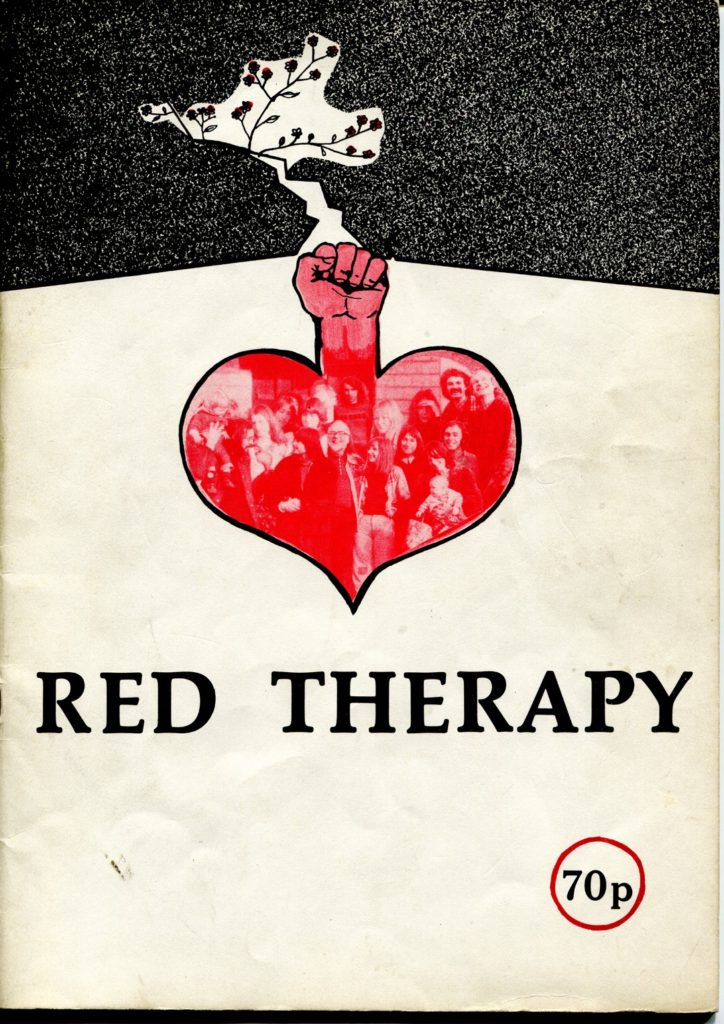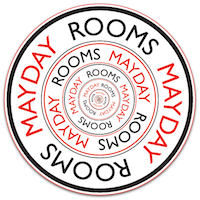
These past weeks we have been focusing on East London Big Flame. Coming together in East London in 1972 this group of left political activists at odds with the moralism of the prevailing left politics of the time embarked on a project of organising themselves non-hierarchically. With an ethos of ‘working with’ rather than being party affiliated and concerned with recruitment, the members of East London Big Flame (ELBF), under the burgeoning influence of the Women’s Liberation Movement and the ‘politics of everyday life’, initiated a series of projects in the Bow area of London. These initiatives included setting up a food co-op and a claimants union, contributing to the East End squatting scene, working and organising within the Ford plant at Dagenham and the Lesney factory in Homerton and establishing the ‘leaderless’ Red Therapy Group.
Our collection can be found here
This material along with an extended commentary
can also be found on the great ELBF website put together by former members:
http://www.eastlondonbigflame.org.uk/
PEOPLE’S FOOD CO-OP Lincoln Estate, Bow
(1974)

Food Coop = finding ways of sharing and building solidarity through collectivising aspects of daily life.
Reflections from about the co-op from ELBF members.
Full text on from http://www.eastlondonbigflame.org.uk/food-co-op
The co-op began in March 1974. ELBF did the co-op every fortnight: a Wednesday meeting at different people’s flats in turn, to put in the orders and the money; Thursday/Friday to buy the food and store it in someone’s home; Friday evening a small group did the packing; Saturday morning everyone picked up their orders. They regularly bought general groceries, meat, cheese, tins, eggs, potatoes and apples.
The women used the meetings as a chance to talk about anything from abortion, children and demos to jobs, lifts and housework. Also, the involvement in doing this project together made us all feel stronger and less isolated as women, and changed relationships in our homes. The whole experience is described in the words of all the women involved in the 16-page pamphlet People’s Food Co-op, Lincoln Estate, Bow. They sold this locally and within the women’s movement to spread the word.
Red Therapy

‘The problem about the word therapy is that it connotes sick people ‘getting better’. i am not ‘sick’.Deepdown I’m a healthy person trying to find my power.‘
Taken from http://www.eastlondonbigflame.org.uk/red-therapy
‘We didn’t believe in the group leader as a kind of infallible authority; we didn’t believe that you had to define yourself as sick before you could get benefits from doing therapy; we didn’t believe in the ‘stand on your own two feet’ ideology which seemed to us basically liberal individualism; we didn’t want to take sex roles for granted.’
‘We didn’t believe in the group leader as a kind of infallible authority; we didn’t believe that you had to define yourself as sick before you could get benefits from doing therapy; we didn’t believe in the ‘stand on your own two feet’ ideology which seemed to us basically liberal individualism; we didn’t want to take sex roles for granted.’
Why are Women Marching?
(8th March 1978)

WE WANT MORE MONEY & HOUSING 4 LESS WORK!
From http://www.eastlondonbigflame.org.uk/organising-women
It was involvement in women’s issues that brought some of us into politics in the first place. As women in East London Big Flame we wanted to introduce the ideas of autonomy into an already existing very active women’s movement: we were struggling to distinguish ourselves from other approaches, to define our position as socialist feminist activists and to understand autonomy as relating to women. We also wanted to make sure that women’s issues were central to the political work of Big Flame.
Because women work both outside and inside the home, we saw them as providing a link between workplace and community struggles; in this way they played a key role in the unification of the class and the generalisation of the struggle. We saw that women’s work at home and in the community was essential for the reproduction of the labour force, and was thus essential to the family and national economy.
On International Women’s Day in 1975, ELBF organised a march from Aldgate to Victoria Park. It culminated in tea in a tenants’ hall and free showing of a film Coup our Coup about solidarity during a women’s strike in a French textile factory
Squatters are human too!
(1984)

‘DON’T LET EMPTY HOUSES ROT’
In Bow in east London in autumn 1974 there was a mass squat by a group of over 50 families who occupied a whole empty block of flats called Sumner House. The Housing Action Group supported this and other initiatives, including involvement there in practical ways, e.g. helping to organize a children’s party at Xmas 1974 for children from Sumner House and from the Lincoln Estate Food Co-op that members of ELBF belonged to. There was some hostility towards squatters from rent-payers nearby, and ELBF produced a leaflet Squatters are human too! to counteract that prejudice and help local people see their common interests.
Films of the Newsreel (1978)

Check out the films of the Newsreel collective, a group committed to co-production and documenting struggles from access to abortion to the Grunwick strike!
In 1974-1978, some members of ELBF were involved in setting up and running the Newsreel Collective which produced a series of documentary films 20-60 minutes long. Their topics included abortion (1975); housing (1976); popular power in Portugal (1975 & 1976); unemployment (1976); hospital closures (1977); the Grunwick strike (1977) ; racism (1978); and later a short fiction film about youth and sex (1982) . The films were made to be shown and discussed in community centres, schools, colleges, youth clubs and other grass roots situations.
